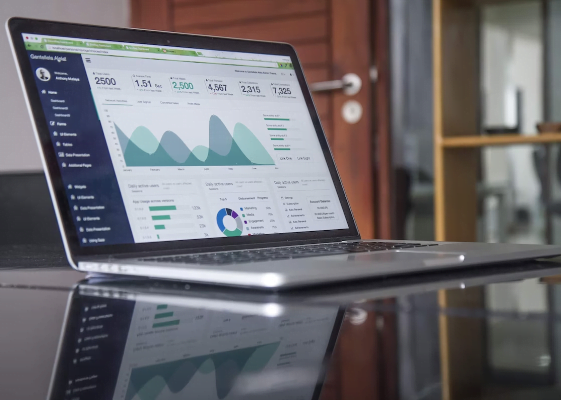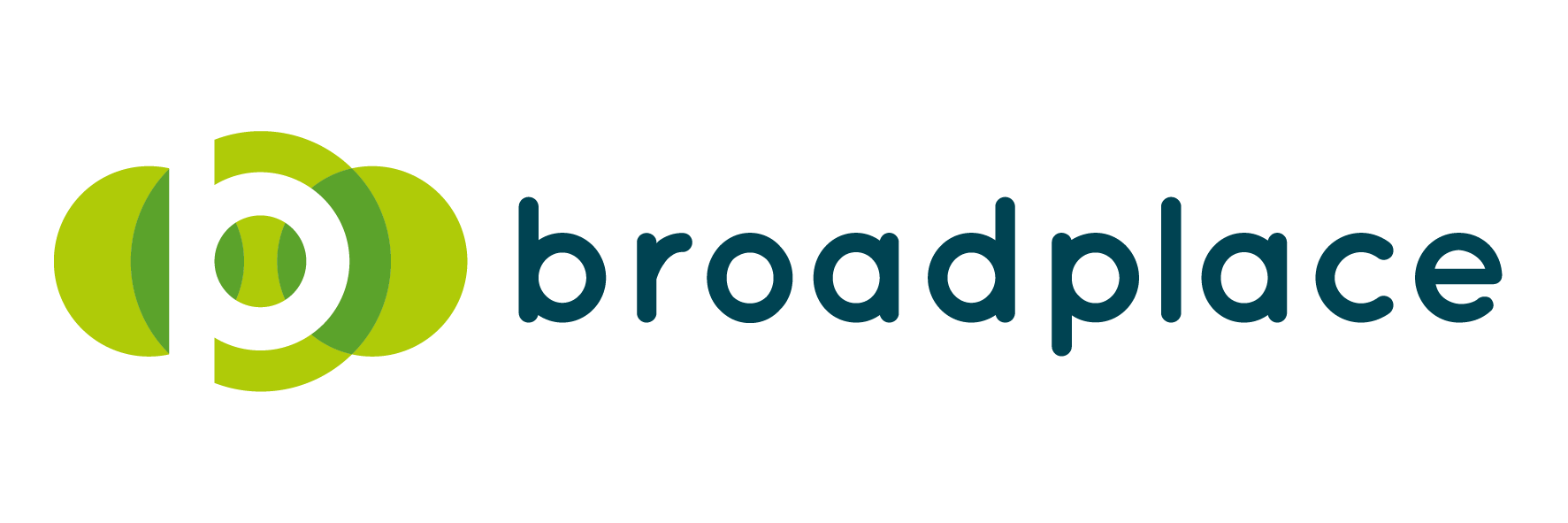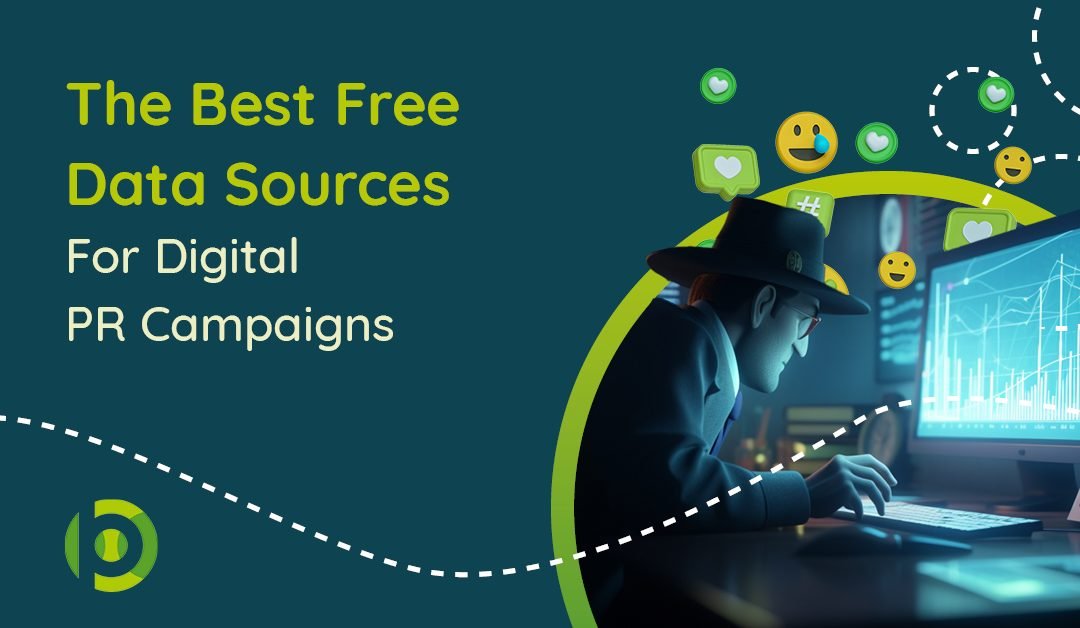The only problem is, you’ve got to know where to find them…
In this post, we’ve collated some of the best free data sources out there for you to download and improve your digital PR output…
Government & Census Data
Government data can largely be acquired for free, except in the instances of FOI requests where the time needed to collect the data exceeds the 18 hours limit. You can find a wealth of different data points from the government, with the following being some of the best sources:
- Office for National Statistics: The UK’s largest independent producer of statistics, with a wealth of data available from employment to population, education to economics. It’s a hugely trusted source and a best friend for many digital PRs.
- Data.gov.uk: The UK government’s open data set. Covers a wide range of topics from business and economy to health, defence, transport and environment. It’s simple to use, and you can search for specific datasets via a search bar, which will provide you with results as well as details on when the data was last updated.
- Data.gov: Essentially the same as the UK government’s open data set, but for US government statistics. Again, works in a similar way in which you can search the database for exactly what you need.
- YouGov: Offers survey data on public opinion across the UK for topics such as politics, technology, media, lifestyle, entertainment and more. YouGov data is collected through a panel of over one million people, who have been recruited through a range of sources to offer a representative sample of the country.
- WhatDoTheyKnow: This is a tool that can help make FOI requests, as well as being a database for previously requested information. Your requests can be handled by them, with the results then published online.
- The CIA World Factbook: Offers facts on every country globally, from government to history, population, economy and more. It’s one of the US government’s most accessed publications and presents the “basic realities about the world in which we live.”
- Data.police.uk: Open data source for policing in England, Wales and Northern Ireland. It’s available to download or through their API, with a wealth of crime data available.
- UK Crime Stats: A similar platform that allows you to look at crime data and analysis by postcode. There are both free and paid variations of this tool, so it’s worth looking into what you want and need, and understanding whether it is readily available through data.police.uk for free.
Financial & Economics Data

There are many sources out there that can provide financial information, both country-specific and global. Top resources for this include:
- World Bank Open Data: Offers over 3,000 datasets and 14,000 indicators, all related to finances around the world. It offers free and open access to global development data, with topics ranging from the affordability of a healthy diet to CO2 emissions and access to electricity.
- Google Finance: Real-time data on stocks, financial news and currency conversions. You’ll also find information on crypto prices and be able to explore various market trends over time.
- Financial Times: As well as being a useful site for collecting news around finance, there are also a large number of business datasets available.
- Companies House: Find information and insights on businesses across the UK. You can discover financial information as well as details on major stakeholders within them.
Health Data

Health data can be collected from a number of the governmental sources mentioned above, as well as those featured below:
- World Health Organisation (WHO): A wide range of information can be found through the WHO, including sustainability, climate change, drug and alcohol use, road safety, and disease, to name a few.
- NHS Information Centre : The NHS releases a large number of publications and data reports each year. These can range from independent investigative reports to reviews and even financial reports.
Entertainment & Media Data

Looking at the arts and entertainment, there are tons of ways you can collect and amalgamate data:
- IMDB: A great resource for information on films, actors, directors and all things movies and television.
- Rotten Tomatoes: A database of movie and television reviews. Often useful for exploring movie ratings.
- OpenLibrary: A huge dataset available on books. You’ll find pages on most books which provides information such as author details, number of pages, reviews, publication dates and more.
- Box Office Mojo: One of the best resources for information on movie box office figures, as well as other pieces of information around films released today and throughout history.
Travel & Weather Data

Travel campaigns are often solid link earners, and among the top free data sets available are:
- TripAdvisor: There is tons of information available about hotels, destinations, restaurants, bars and more. A go-to, particularly when you’re looking for user ratings.
- Transport for London (TfL): Information on all things London travel. You’ll find an API available as well as downloadable data, with the likes of air quality insight, departure/arrival times, accessibility and more.
- Met Office: Data available on weather in the UK, including temperatures, sunshine, rainfall and snow. This can be accessed via individual weather station.
- UNESCO: Information on countries around the world in terms of heritage sites, as well as science, technology and more.
- Open Street Map: An open license mapping service. You can export data via the map, with it essentially being Wikipedia for maps.
Miscellaneous Data

Of course, there are many, many more data sources out there offering data on a variety of subjects. Among the other top free datasets to make the most of include:
- Ordnance Survey: Information on geospatial data, with thousands of updates made each and every day. There is a range of plans and APIs available, however, these do require payment.
- Google Trends: Trend data is based upon the number of searches made via Google. You can find trend data for any topic you wish, with it possible to break down data by country, date and types of searches, i.e. web search, image search etc.
- Glassdoor: A tool to uncover businesses, including salaries, and employee reviews. It’s a useful tool for exploring information on certain roles, such as the average salary for a lab technician, for example.
- Rightmove & Zoopla: Information on house prices, house sales and insight into the property market. Both are excellent for finding average house prices in areas, as well as getting overall trends on the market at present, Zoopla does have an API and developer portal, which perhaps puts it just ahead of Rightmove in the data stakes.
- Indeed: Worldwide database of jobs on the market, salaries and more. Another that has a dedicated developer portal so you can utilise the brand’s API.
To Summarise: Utilise These Robust Data Sources To Elevate Your Campaigns
If you’re looking to build robust data campaigns, then making the most of free and trustworthy resources can be ideal, whether you’re building your campaign around it, or using it to complement your key points and angles.
There are vast amounts out there that can really elevate what you do, but you need to ensure you collect it efficiently and find the angles and insights within it that haven’t been covered before. As you can imagine, it’s a competitive space, and many digital PRs are looking for headline-worthy data, so it’s all about being first to the punch or using it in a different way.

